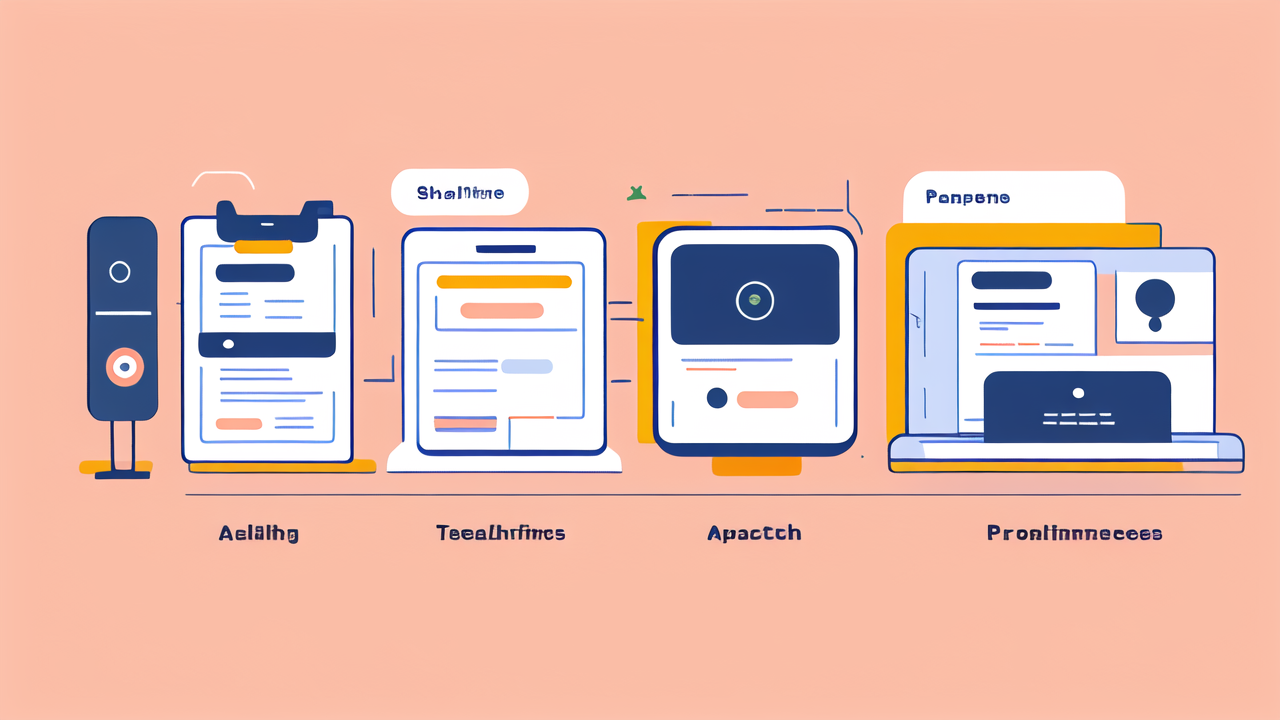The Evolution of Health Monitoring in Wearable Technology
The inception of wearable health devices
Wearable health devices have come a long way since their early days. The journey began with simple step counters and heart rate monitors. These basic tools laid the foundation for more advanced health tracking. Early adopters saw the potential in these devices for improving personal health. As technology improved, so did the capabilities of these wearables. They became smaller, more accurate, and easier to use. This evolution paved the way for the sophisticated health monitors we see in today's smartwatches.

Technological advancements and their contribution to health monitoring
Technological progress has greatly enhanced health monitoring in wearables. Sensors have become more precise, allowing for better data collection. Battery life has improved, enabling longer use between charges. Connectivity options have expanded, making data sharing easier. These advancements have led to a wider range of health metrics being tracked. Modern smartwatches can now monitor sleep patterns, stress levels, and even blood oxygen levels. The improved accuracy and variety of data have made these devices more valuable for health management.
The role of AI and machine learning in health tracking
AI and machine learning have revolutionized health tracking in wearables. These technologies analyze vast amounts of data to provide meaningful insights. They can detect patterns and anomalies that humans might miss. AI algorithms can predict potential health issues based on collected data. Machine learning helps devices adapt to individual users, improving accuracy over time. These smart features turn raw data into actionable health advice. They make health monitors more personalized and effective tools for wellness management.
The Importance of Health Monitors in Today's Lifestyle
Encouraging preventive health care through technology
Health monitors in smartwatches play a crucial role in preventive healthcare. They provide real-time data on various health metrics. This immediate feedback helps users make informed decisions about their health. Users can track their progress and set health goals. The devices can alert wearers to potential health issues before they become serious. This early warning system encourages proactive health management. It empowers individuals to take charge of their well-being. By promoting awareness, these devices contribute to a more health-conscious society.

How health monitors are shaping fitness regimes
Health monitors have transformed the way people approach fitness. They offer personalized workout plans based on individual health data. Users can track their performance and see improvements over time. The devices provide motivation through goal-setting and achievement tracking. They can suggest workout intensity based on heart rate and other vital signs. This tailored approach makes exercise more effective and safer. Health monitors also promote consistency by reminding users to stay active. They have made fitness more accessible and engaging for many people.
The contribution of health monitors to telemedicine
Health monitors in smartwatches have significantly boosted telemedicine. They provide doctors with accurate, real-time health data from patients. This information helps in remote diagnosis and treatment monitoring. Patients can share their health trends with healthcare providers easily. This continuous monitoring allows for better management of chronic conditions. It reduces the need for frequent in-person visits. In emergencies, these devices can alert medical services automatically. They bridge the gap between patients and healthcare providers, improving overall care quality.
Key Players and Innovations in the Health Monitoring Ecosystem
Leading brands and their health monitoring solutions
Several major brands dominate the health monitoring market in smartwatches. Apple leads with its Apple Watch, offering features like ECG and fall detection. Fitbit provides comprehensive sleep tracking and stress management tools. Garmin focuses on advanced fitness metrics for athletes. Samsung's Galaxy Watch series offers blood pressure monitoring in some regions. These brands continually innovate, adding new health features to their devices. They compete to provide the most comprehensive and accurate health monitoring solutions. Their efforts drive the entire industry forward, benefiting consumers with better health tech.

Up-and-coming startups revolutionizing health tracking
Startups are bringing fresh ideas to health tracking in wearables. Some focus on specialized health concerns like diabetes management. Others explore new ways to measure and interpret health data. These companies often target niche markets overlooked by larger brands. They're developing sensors for metrics like hydration levels and muscle oxygen. Some startups are working on non-invasive blood glucose monitoring. Their innovations push the boundaries of what's possible in wearable health tech. They challenge established players and drive industry-wide innovation.
The future outlook of health monitors in the wearable tech market
The future of health monitors in wearables looks promising. We can expect more advanced sensors and health tracking features. Non-invasive monitoring of more health metrics will likely become possible. Integration with healthcare systems will probably improve. Artificial intelligence will play a bigger role in health analysis and predictions. Personalization will increase, with devices adapting more to individual health needs. The line between medical devices and consumer wearables may blur. As technology advances, these devices will become even more crucial for personal health management. They will likely play a growing role in preventive healthcare and disease management.




Leave a comment
This site is protected by hCaptcha and the hCaptcha Privacy Policy and Terms of Service apply.